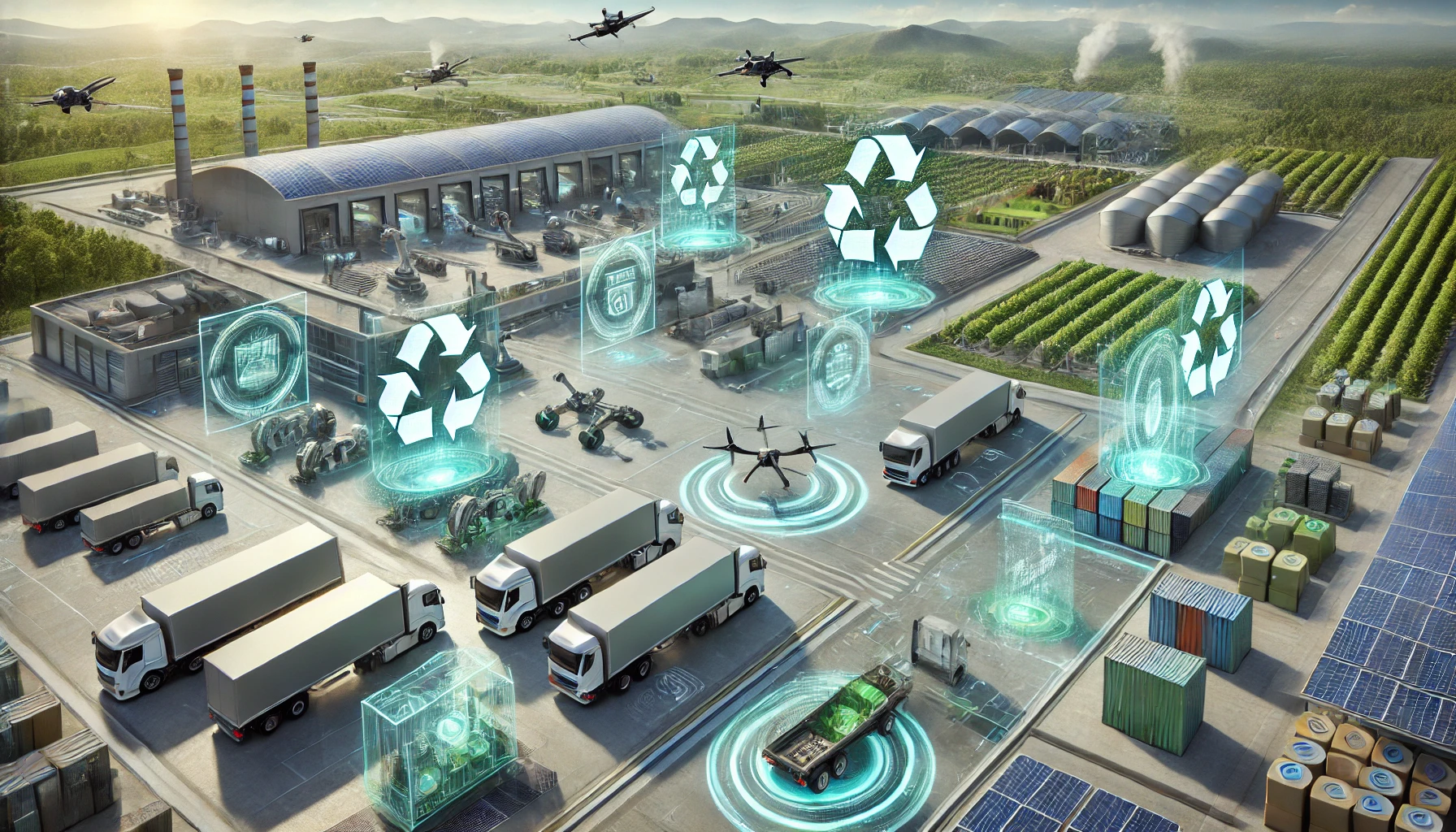AI alone cannot drive sustainable logistics without organizational readiness
AI plays a central role in digital transformation, particularly in organizations committed to circular logistics, an approach that minimizes waste, extends product lifecycles, and prioritizes sustainability. AI enables predictive analytics, real-time data processing, and optimization tools that help organizations make informed decisions across supply chains.

Global logistics is undergoing a dramatic shift, where sustainability goals and digital transformation collide. Businesses are not only rethinking how goods move through supply chains but also how technology can turn environmental pressures into opportunities.
A recent study published in Logistics, titled "Artificial Intelligence-Enabled Digital Transformation in Circular Logistics: A Structural Equation Model of Organizational, Technological, and Environmental Drivers", reveals that artificial intelligence is reshaping decision-making in this sector, but only when organizations pair it with strong strategies and cultural readiness.
The research maps out how AI integrates with sustainability efforts and why success depends on more than just adopting the latest tools.
How does AI enable transformation in circular logistics?
The study demonstrates that AI plays a central role in digital transformation, particularly in organizations committed to circular logistics, an approach that minimizes waste, extends product lifecycles, and prioritizes sustainability. AI enables predictive analytics, real-time data processing, and optimization tools that help organizations make informed decisions across supply chains.
The researchers found that AI-enabled decision support acts as the bridge between technology adoption and operational change. Advanced tools such as machine learning algorithms, IoT integrations, and RFID tracking systems provide organizations with actionable insights, allowing them to forecast demand, streamline reverse logistics, and improve resource allocation. These capabilities are essential for implementing circular practices where waste reduction and sustainability are priorities.
However, the study also notes that technological change alone is insufficient. Without proper organizational structures and cultural alignment, AI’s potential remains underutilized. Many organizations that invest in AI still struggle to achieve meaningful operational transformation because they lack the strategic vision and internal readiness to support it.
Why are organizational readiness and environmental factors so important?
A key finding of the research is that strategic readiness, the willingness and ability of an organization to embrace change, has the strongest influence on successful AI integration. Companies with clear leadership support, cross-departmental collaboration, and a culture that encourages innovation are better positioned to leverage AI for meaningful transformation. These organizations see AI not just as a tool but as a catalyst for rethinking processes and driving sustainability.
The study also highlights the role of environmental pressures. External factors such as regulatory requirements, market expectations, and societal demands for sustainability push organizations to adopt AI-driven solutions. Regulations on emissions, for example, motivate companies to integrate predictive models that optimize delivery routes and reduce carbon footprints. Similarly, customer expectations for eco-friendly practices drive businesses to adopt circular economy strategies enhanced by AI.
However, the research makes clear that external pressures alone are not enough. Without strong internal alignment, organizations risk adopting AI superficially, investing in technologies without embedding them into decision-making processes or aligning them with sustainability objectives.
What does this mean for the future of logistics?
The findings have significant implications for companies aiming to stay competitive in an increasingly digitized and environmentally conscious marketplace. To fully realize the benefits of AI in circular logistics, businesses must focus on three critical areas:
- Strategic Integration – AI adoption must align with a clear vision for sustainability and innovation. Leadership must prioritize cultural change alongside technological investments to create an environment where AI can drive transformation.
- Environmental Alignment – Companies need to leverage regulatory frameworks and market trends as opportunities to strengthen their use of AI. By aligning with external expectations, businesses can turn compliance into a competitive advantage.
- Technological Synergy – Rather than viewing AI in isolation, organizations should integrate it with other digital tools such as IoT, big data analytics, and automation systems to maximize efficiency and sustainability outcomes.
The research also points to the importance of continuous adaptation. AI systems require ongoing updates, data integration, and employee training to remain effective. Organizations that treat AI as a one-time investment risk falling behind as technologies evolve and market demands shift.
- FIRST PUBLISHED IN:
- Devdiscourse










